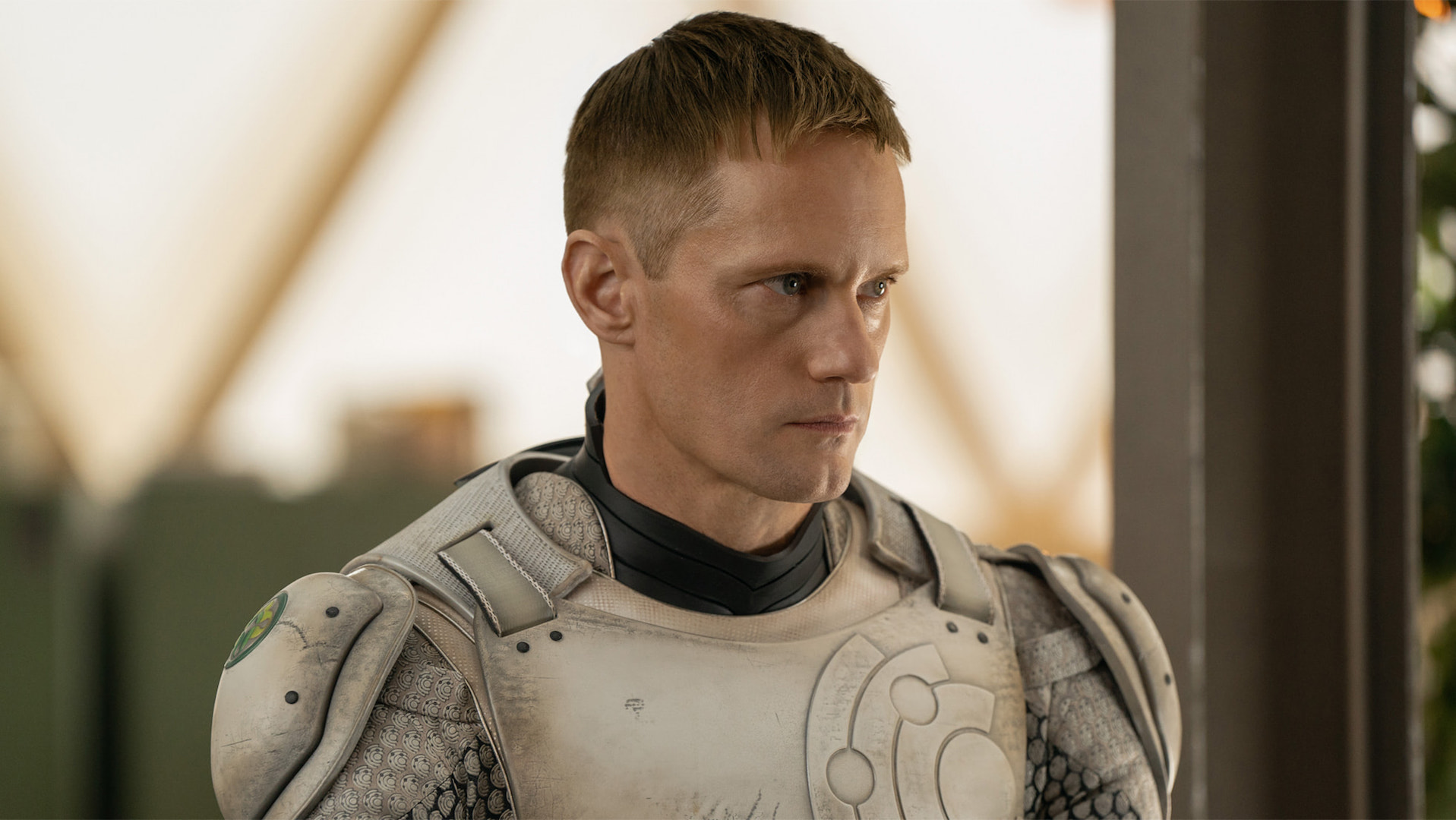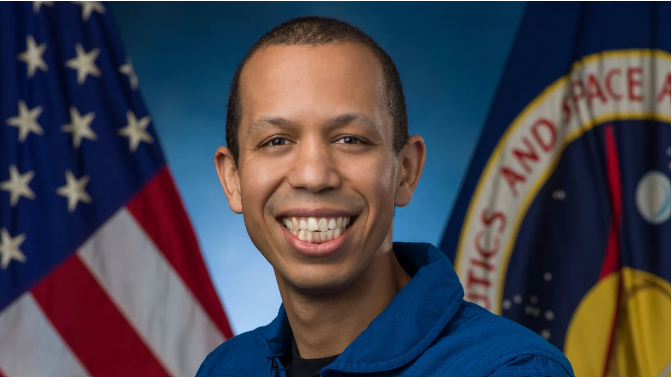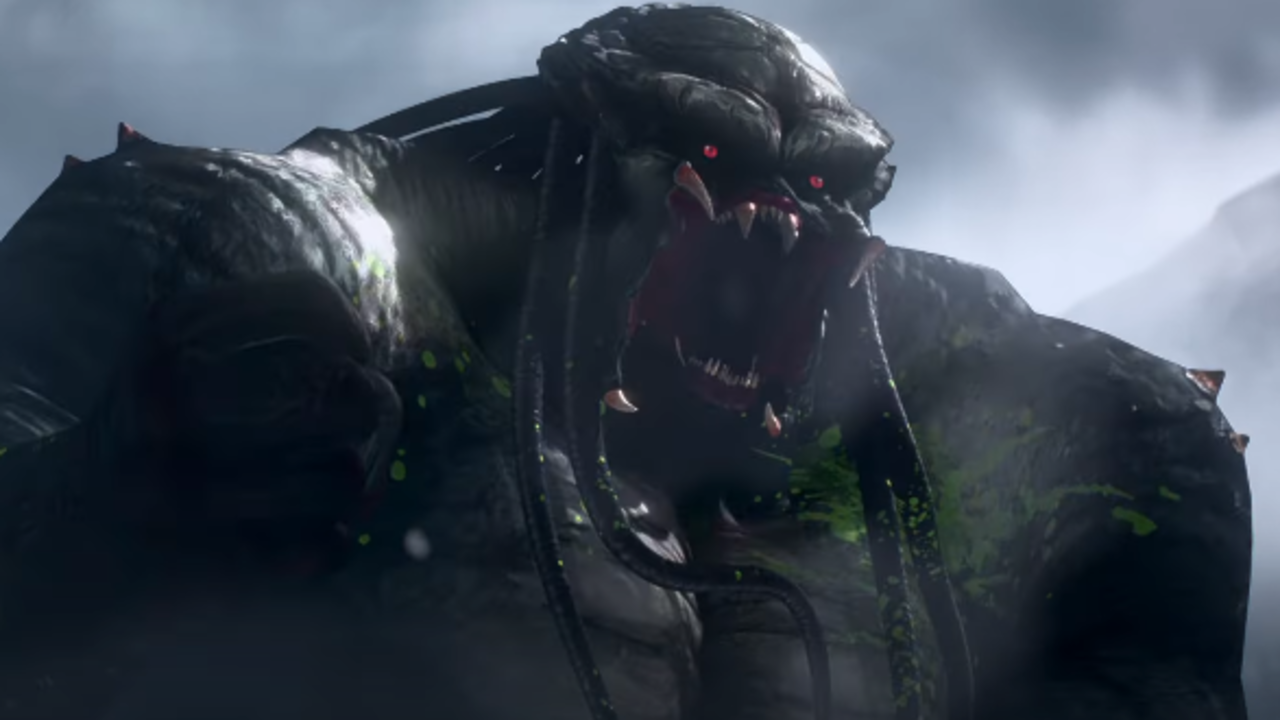Writer-director Neil Burger is well known for his provocative cinematic projects, most notably 2006's period-set magician movie "The Illusionist," 2011's psychological thriller "Limitless," and a trio of "Divergent" films adapted from author Veronica Roth's young adult sci-fi novels.
Now Burger has his eyes fixed on the stars with his new science fiction adventure flick, "Voyagers," which revolves around the perils inside a generation spaceship carrying 30 home-grown candidates on a one-way mission to settle an exoplanet 86 years from Earth.
Lionsgate will release "Voyagers'' nationwide on April 9. The film'syouthful cast includes Tye Sheridan, Lily-Rose Depp, Fionn Whitehead, Chanté Adams, Isaac Hempstead Wright, Viveik Kalra, Archie Madekwe, Quintessa Swindell, Madison Hu, and Colin Farrell. The premise finds the crew discovering that they're being drugged with an emotional suppressant called "The Blue," and centers on the heightened chaos that ensues when they stop drinking their medicine.
Related: Astronauts on Mars missions could suffer cognitive and emotional problems
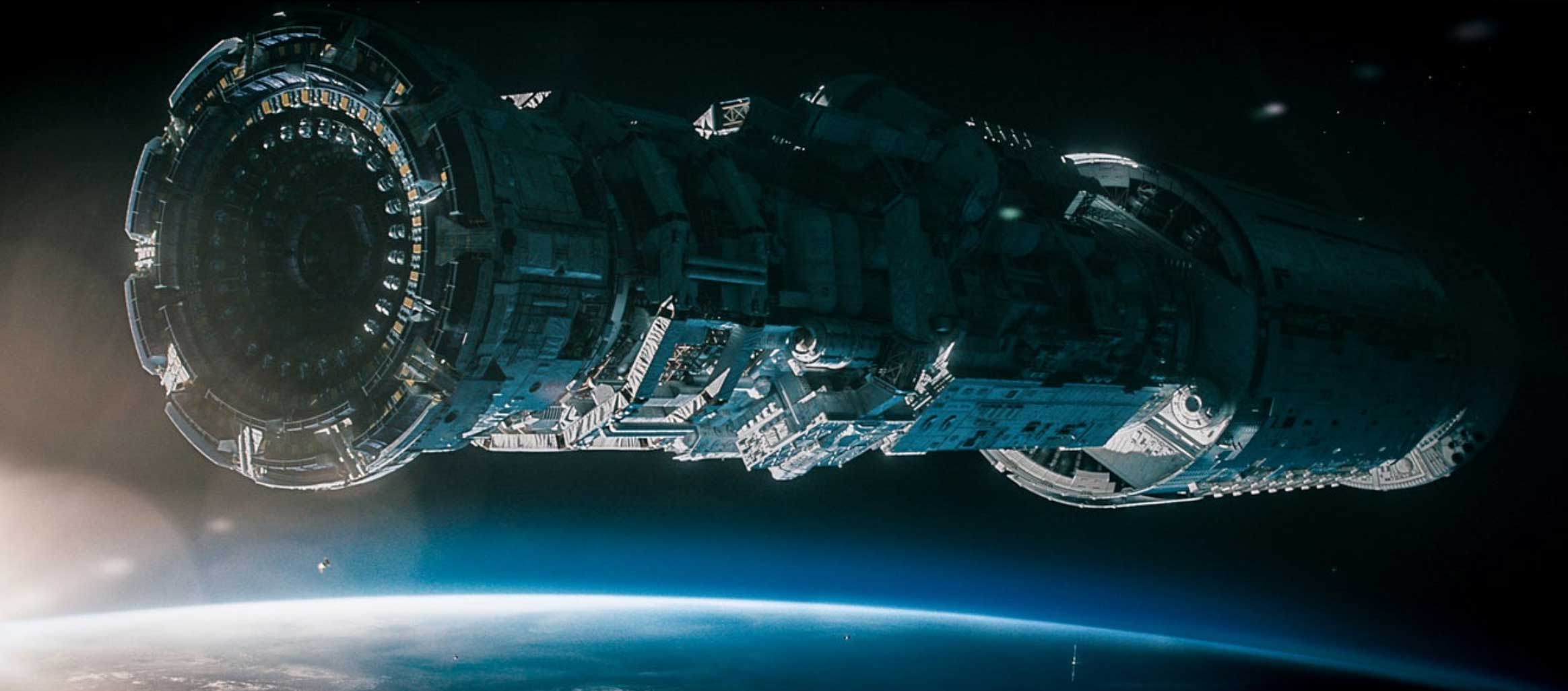
Here's the official "Voyagers" synopsis:
"With the future of the human race at stake, a group of young men and women, bred for intelligence and obedience, embark on an expedition to colonize a distant planet. But when they uncover disturbing secrets about the mission, they defy their training and begin to explore their most primitive natures. As life on the ship descends into chaos, they're consumed by fear, lust, and the insatiable hunger for power."
Space.comspoke with Burger on the genesis of "Voyagers," what sort of mood and visual style he hoped to attain, the origins of the azure-hued cocktail known as "The Blue," his inspiration for the plot, and visiting SpaceX to create a realistic set environment for his actors.
Get the Space.com Newsletter
Breaking space news, the latest updates on rocket launches, skywatching events and more!
Space.com: What was the creative seed for writing and directing "Voyagers?"
Neil Burger: I was interested in human nature in a vacuum. We've seen other space movies that are going to a distant planet, but I wanted to delve into the idea of what's it really like to be confined on one of these ships if we were really going to go someplace and how does that work. It's not a shopping mall in space, you need to conserve weight and conserve fuel and it's all the bare minimum. It's tight quarters so we designed this set with these long narrow hallways leading to confined compartments. So then it's how do people hold up under that kind of pressure for their entire lives. And if things do start to break down what’s that look like?
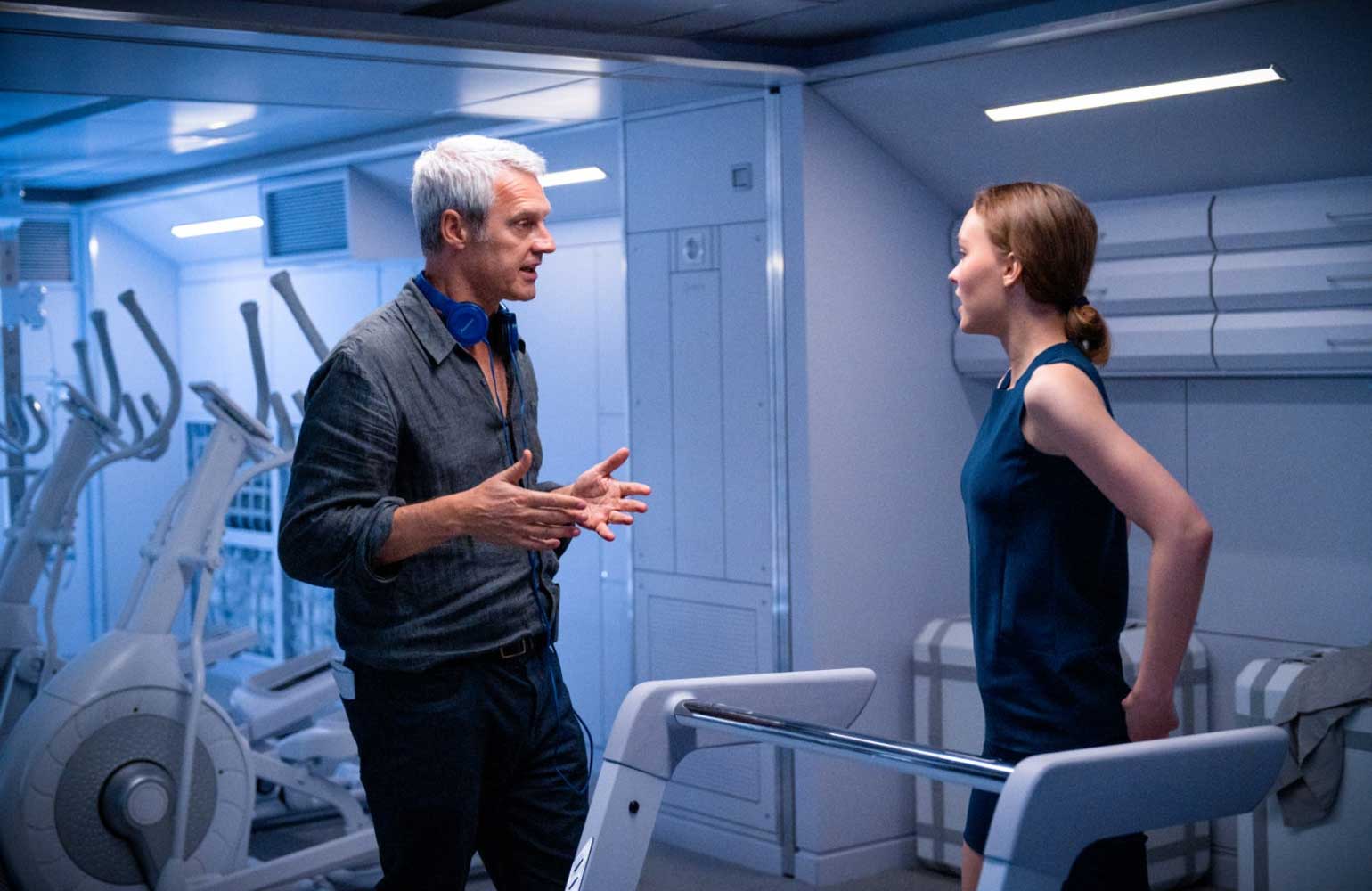
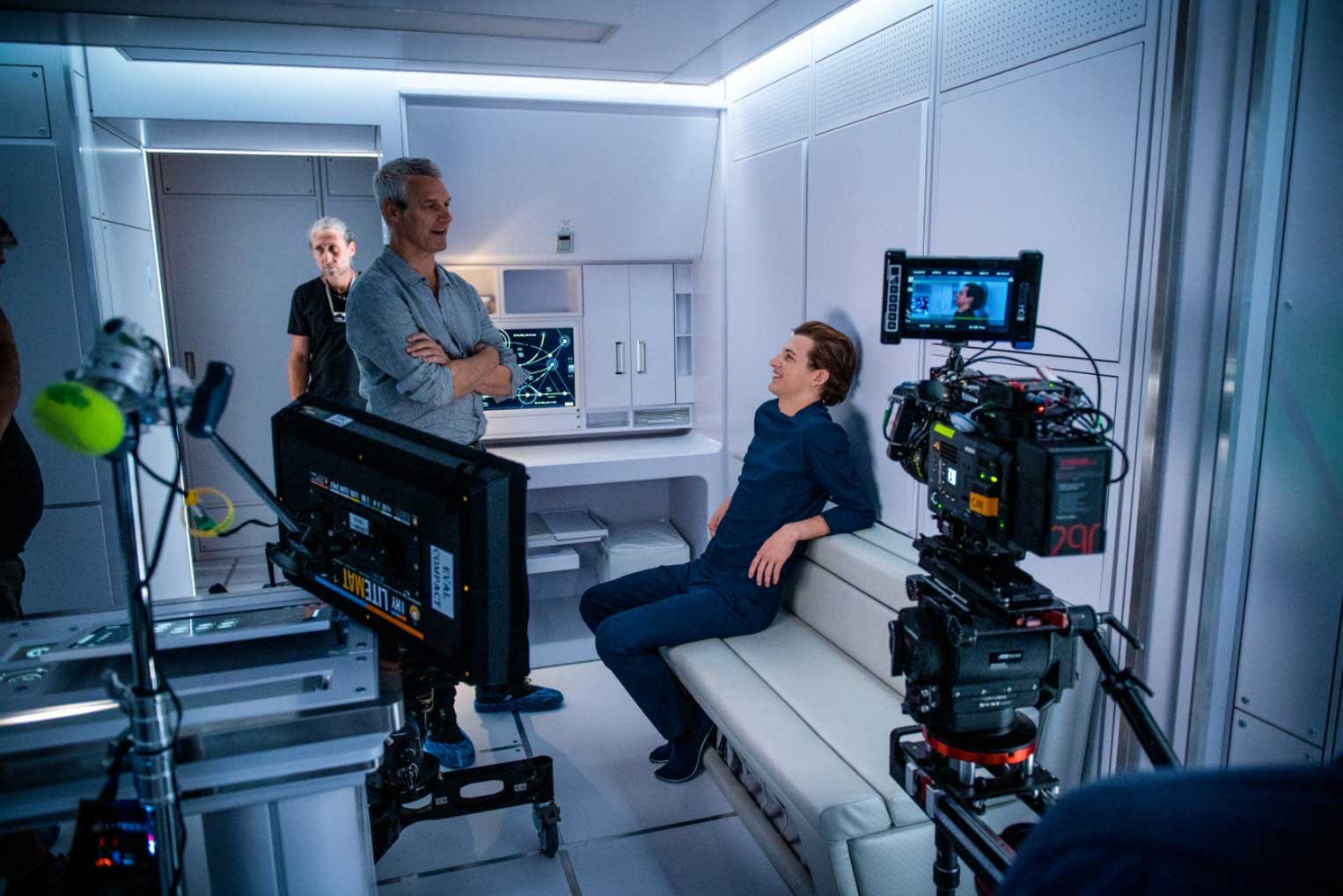
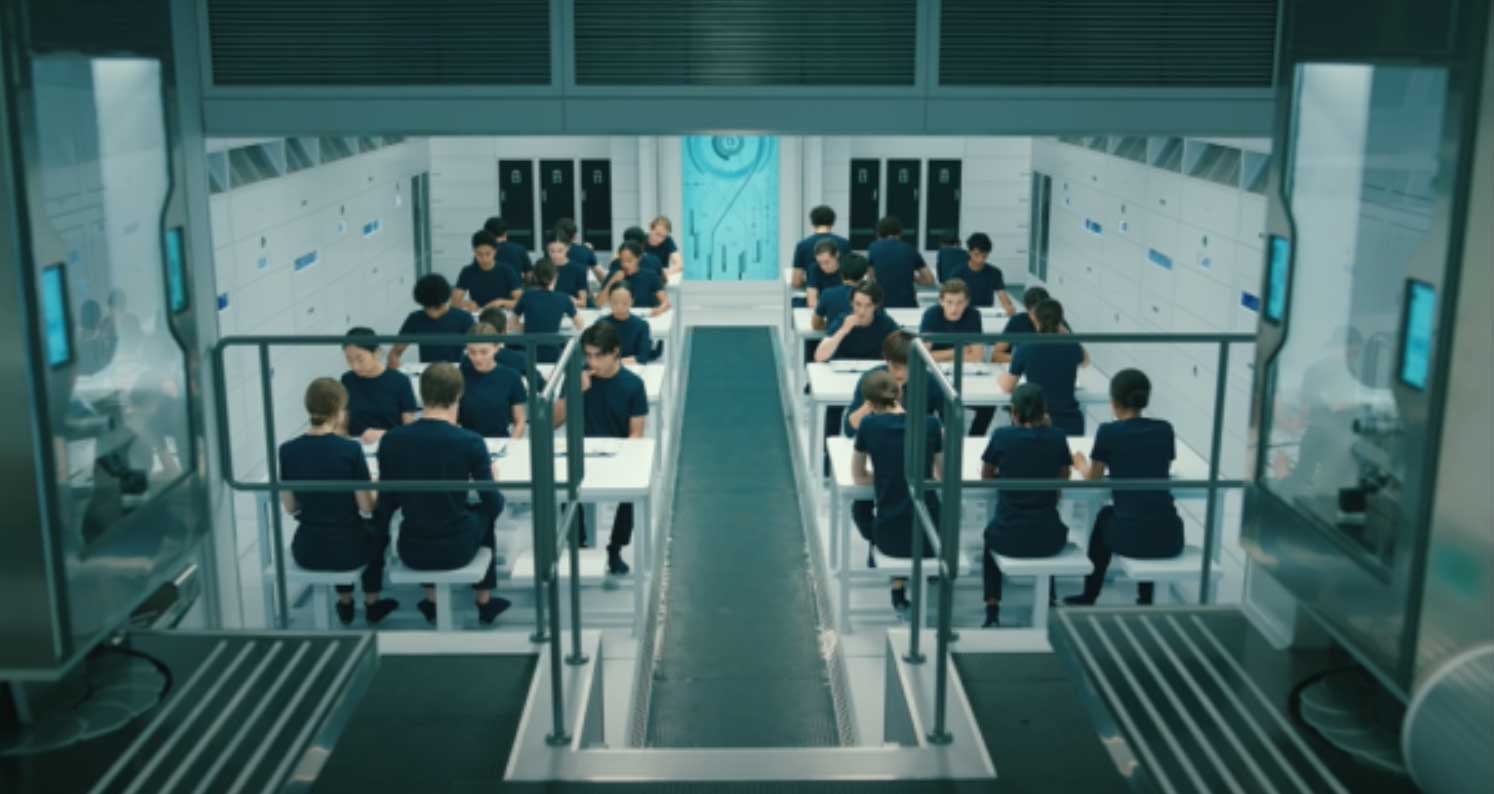
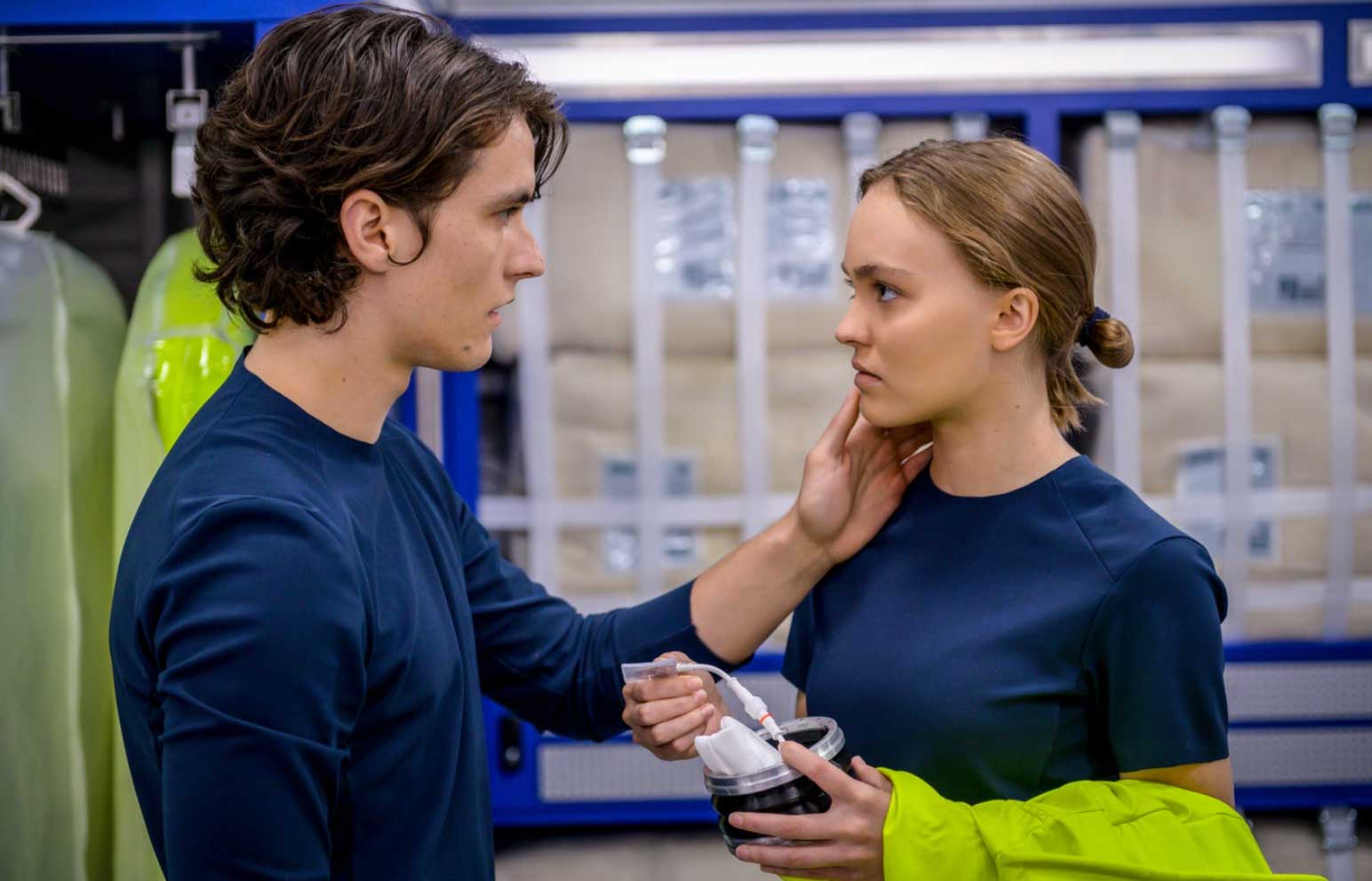
Space.com:You've explored elements of human potential and limitations in other movies. How does "The Blue" operate as a narrative device in the screenplay’s framework?
Burger:Basically, they put these young people on the ship who are going to just live their lives and procreate on the ship and have the next generation and then the next generation, and that's how they're going to get there. The mission planners have accounted for everything, so they have them on what we call "The Blue." It’s like a sedative. It's something making them docile and dulled down so that they don't act out and procreate at the right time to conserve food. They don't know that's what it’s doing to them, they think it's some vitamin supplement.
But they're super smart and one of them hacks into a computer and stumbles upon the truth of what this is. So he and his friend go off of it and they suddenly awaken to this emotion and human sensation that they've never felt before. In a way, going off the drug is like being on a drug for them. It's intoxicating. Slowly the whole crew goes off of it and all hell breaks loose.
Related: Is Interstellar Travel Really Possible?
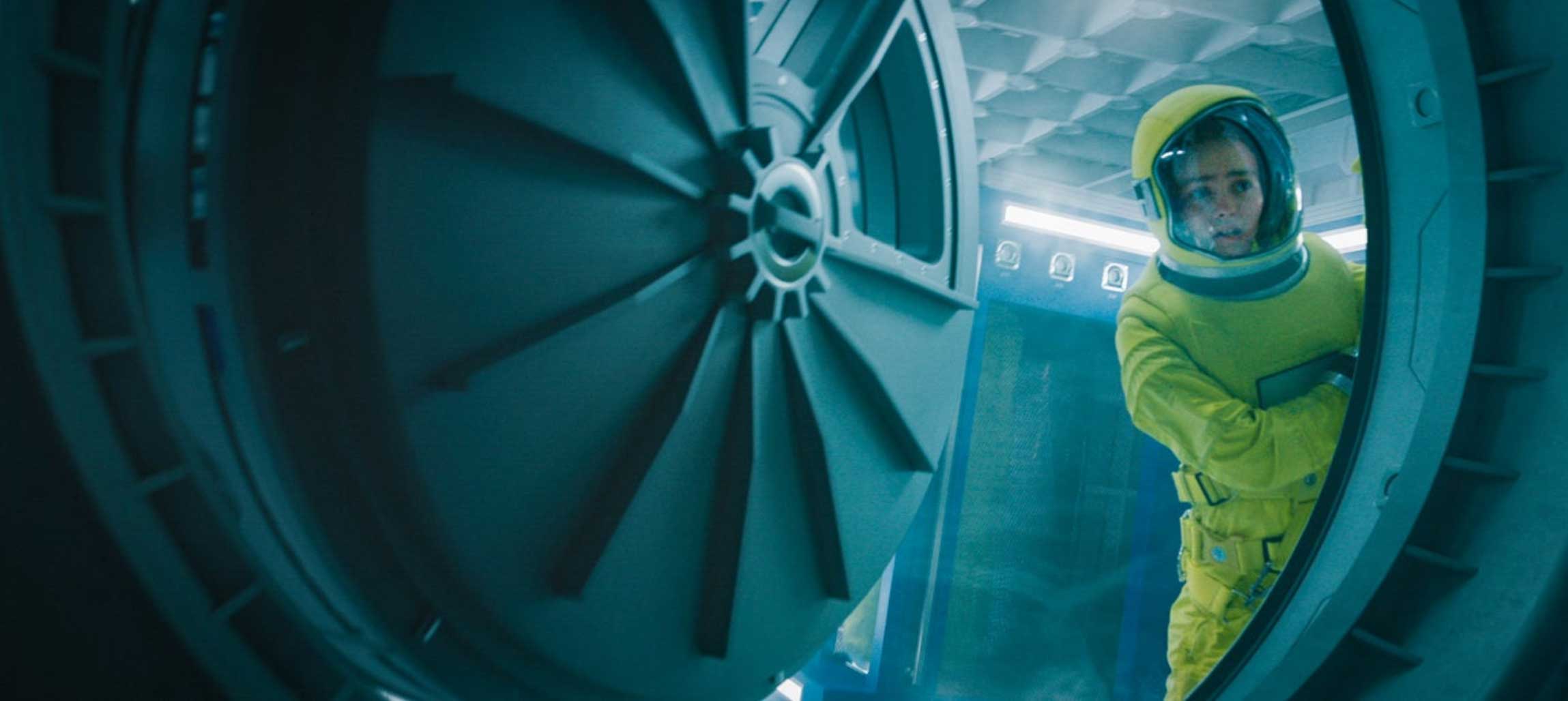
Space.com: What were some of your influences and inspirations in creating a mood and tone for "Voyagers?"
Burger: Because I wanted it to be about human nature in a vacuum, I wanted to strip everything down with the ship. Which sort of makes sense they'd have a minimal craft to take them there. So simple rooms and simple corridors all in white. I like that because it featured the human aspect of it. Certainly the ship is a character but it's just white ceilings and white floors. And I also saw it, because of the confinement and claustrophobia, as a little bit like a submarine movie. So I looked a lot at "Das Boot" to see how those sailors were dealing with the stressors of being confined underwater. This is different, but it's a similar thing.
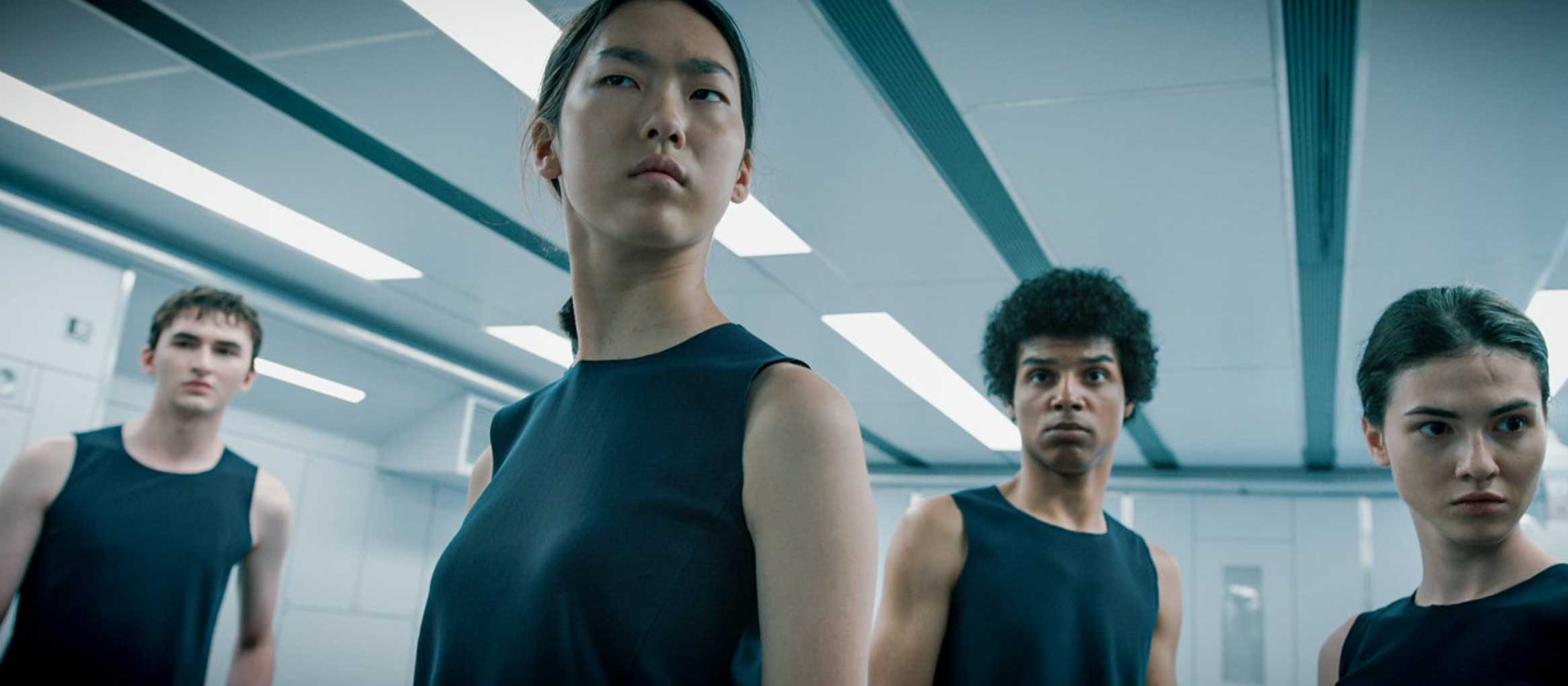
Space.com: In your research, what were some shocking or surprising facts you discovered about colony ships and space travel?
Burger:Once I came up with the idea, for me it always has to be based in reality. I wanted it to all ring true. The most wonderful thing we did is spend time at SpaceX in California. [SpaceX's headquarters and rocket factory are in Hawthorne, Calif.] We went there and went through the whole design process and hung out with their engineers and got to sit in a capsule and see how their controls were done. So that was very informative, what they were working on, and to see how they were simplifying everything. You look at these old spaceships or even old airplanes and there’s a million different switches and toggles. They brought it all down to basically an iPad's worth of touchscreens. It was just inspiring to be there.
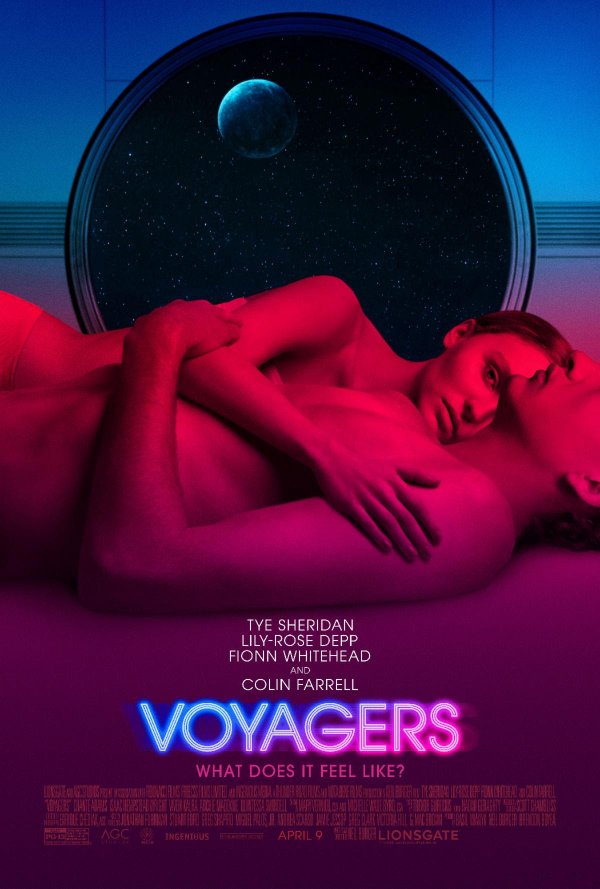
Space.com: Would you climb aboard a starship and blast into space if given the chance?
Burger: I would go up in space, yeah. I think it would be amazing. People don't realize the stresses it puts on you. I would love to do it.
You live your life on Earth and get into all your petty concerns and worries. To be up in the heavens looking down would put it all in perspective.
"Voyagers" launches into theaters Friday, April 9. The PG-13 movie runs 1 hour, 48 minutes.
Follow us on Twitter @Spacedotcom and on Facebook.
Join our Space Forums to keep talking space on the latest missions, night sky and more! And if you have a news tip, correction or comment, let us know at: community@space.com.
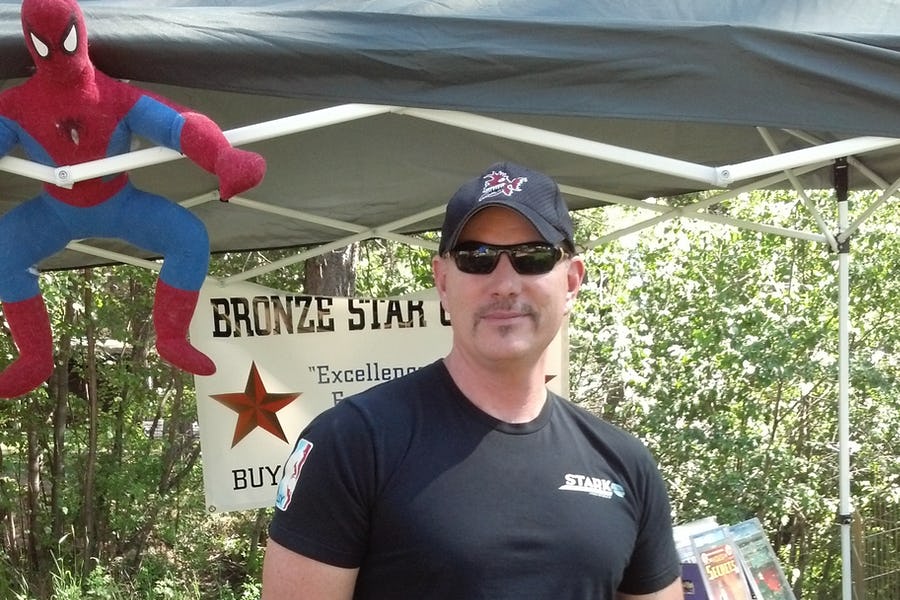
Jeff Spry is an award-winning screenwriter and veteran freelance journalist covering TV, movies, video games, books, and comics. His work has appeared at SYFY Wire, Inverse, Collider, Bleeding Cool and elsewhere. Jeff lives in beautiful Bend, Oregon amid the ponderosa pines, classic muscle cars, a crypt of collector horror comics, and two loyal English Setters.







